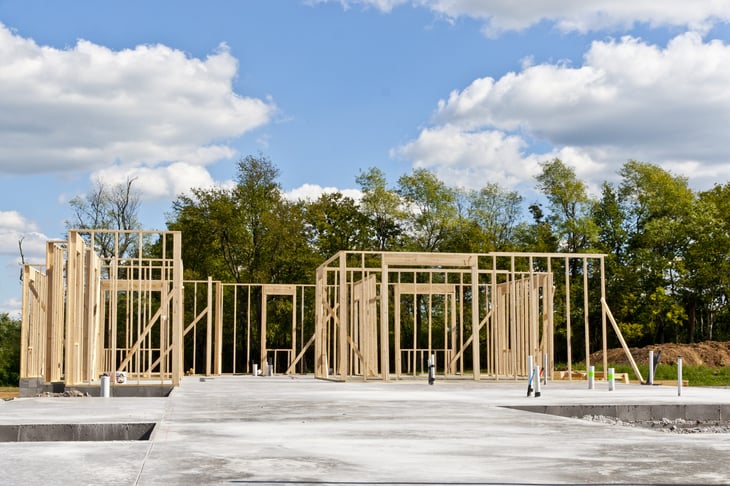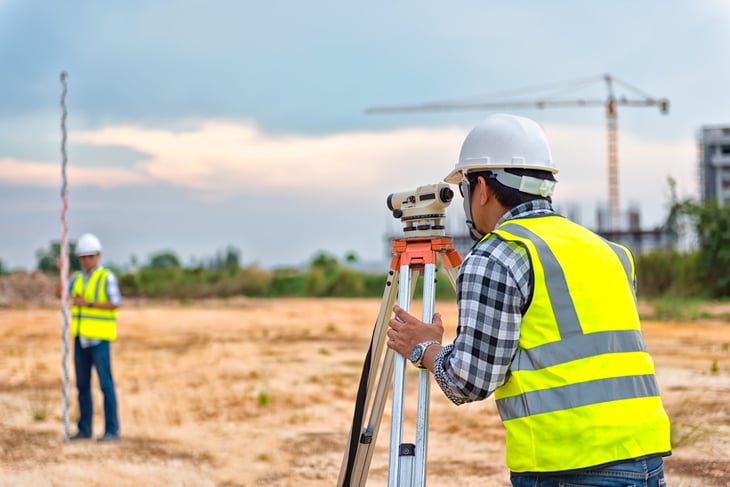
Editor's Note: This story originally appeared on Point2.
Building your own home is a dream for many, and if you’re seriously considering it, you’ll first need to buy a piece of land.
This isn’t quite as easy as it sounds. However, with a few do’s and don’ts, you’ll be well on your way to getting it right.
Do Get a Land Survey

The very first thing you’ll need to do before buying a plot of land to build a home is to get a survey. Boundary disputes are one of the hidden dangers of buying land, especially when purchasing a plot that’s been vacant a long time.
The survey will confirm whether there are any cases of encroachment you need to be aware of, as well as easements and restrictions. It will also measure elevation, identify slopes and floodplains, and generally tell you what you need to expect before laying down the foundation.
Don’t Ignore Environmental Tests

If a plot of land has been vacant for many years, always make sure that you get environmental testing done. This will help reveal any traces of contamination, whether in the soil or in the groundwater.
Ideally, you’ll want to have these tests carried out by a professional before buying the land. Otherwise, clearing out any hazardous substances will become your responsibility as the new owner.
Do Check Local Zoning Regulations

Talk to the local authorities about zoning regulations, and ask if there are any changes likely to be made in the future. This way, you’ll know just how feasible building your dream home is.
Nothing is worse than buying a plot of land only to discover that local codes and ordinances prevent you from going ahead with the construction plan. Also, don’t count on your rezoning application being approved after buying the land.
Don’t Forget to Check the Local Market

Checking out the local market is a must regardless of whether you’re buying land or a ready-built house. But in the case of land, you’ll want to do your due diligence, especially if you plan to build.
Drive through the neighborhood, look at recent sales, and try to determine whether you’re dealing with an up-and-coming area or one that’s on the brink of decline. Also, pay close attention to what else is being sold nearby. You may find a teardown is actually cheaper than the plot of land you had your eyes on.
Do Check Access to Utilities

The most important thing you need to check is access to water, especially drinking water. Similarly, you’ll want to check whether local regulations allow you to dig a well.
Find out if there are nearby sources for gas and electricity and how difficult it would be to connect them if they’re missing. Also, remember to check if your phone has signal and internet access, especially when buying land in a remote, rural area.
Don’t Rely on a Conventional Loan

Land is considered a risky investment by most banks. This means that you might experience difficulties finding a lender to finance your purchase.
Even if you do find one, expect stringent qualification requirements, such as a higher down payment and a stellar credit score. Realistically, there’s a very high chance that you’ll have to buy your plot of land using cash.
Do Have an Airtight Budget Ready

When planning a budget for buying land, you’ll need to determine not just how much you can afford to spend but also how to source it. If you’re making a cash purchase, make sure you have proof of funds ready for the seller.
Otherwise, determine how much money you can obtain on your own and how much can be secured through other means, such as a home equity line of credit (HELOC).
In addition to this, you’ll need to factor in the cost of a land surveyor, getting a soil and water test, title insurance, development fees, permits, rezoning fees if needed, impact fees, and hooking up utilities. All of these can eat into your cash reserves before you even start building, so make sure your budget accommodates them.
Don’t Ignore Hidden Costs

Buying land can be costly, not just in terms of finances but also time. If you’re lucky, you can move into your newly-built dream home less than a year after closing on the sale.
However, you may also face delays caused by zoning regulations, permits and building codes, finding the right contractors, building materials, and more. This will add to your costs, especially if you continue renting and paying off a loan while waiting for your home to be built.
Do Work With a Specialized Agent

As with any real estate purchase, working with a professional can be of immense help. A real estate agent specializing in land purchases can assist with finding the plot of land that suits your needs, help you negotiate the price, and advise on paperwork and even financing options.





Add a Comment
Our Policy: We welcome relevant and respectful comments in order to foster healthy and informative discussions. All other comments may be removed. Comments with links are automatically held for moderation.